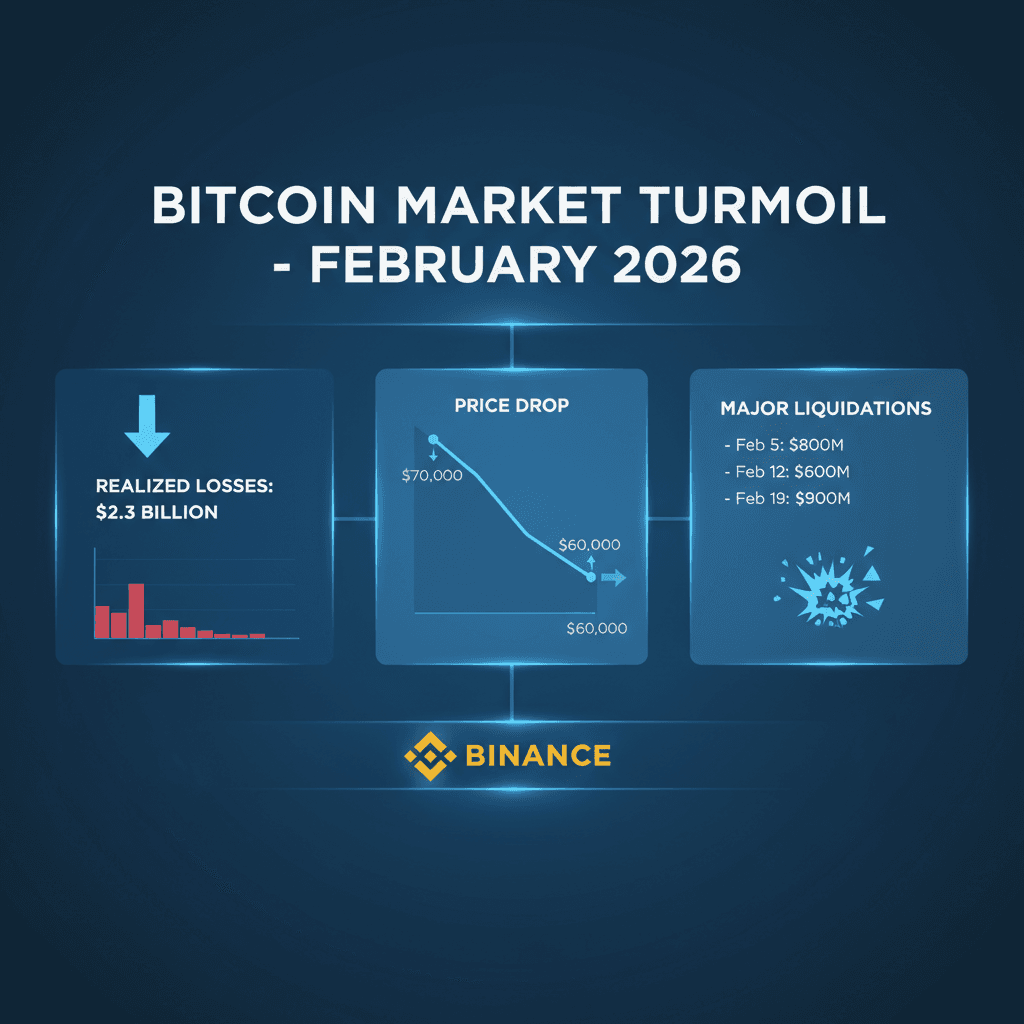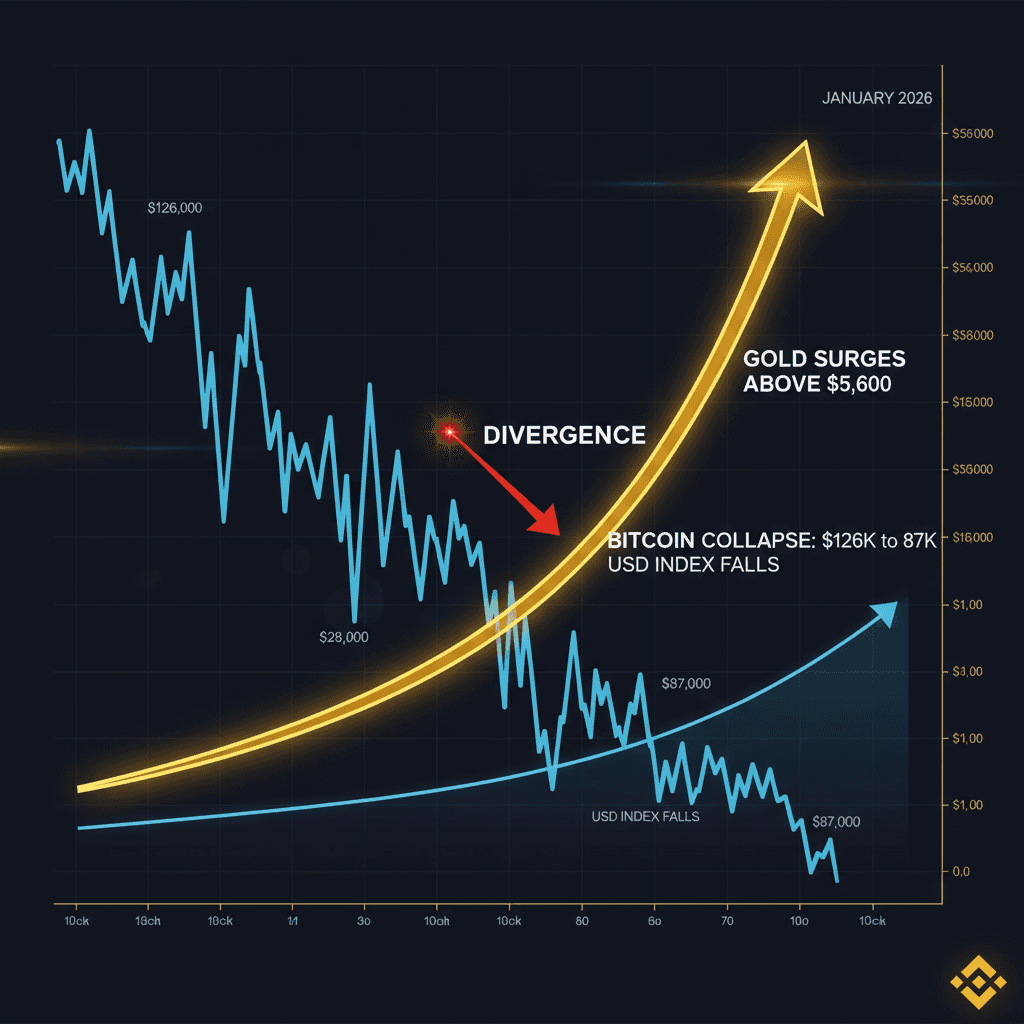Bitcoin's October 2025 Crash: $19B Liquidation Wave & What It Means for Copy Traders
News
Nov 3, 2025
3 Min Read
Bitcoin ends October 2025 down 3.7%, triggering $19B in liquidations. What this means for copy traders and automation platforms like Copygram.
🚨 Bitcoin's Historic October 2025 Crash: What Happened?
Bitcoin crash October 2025 sent shockwaves through the crypto world as the leading digital asset closed the month in the red for the first time since 2018, dropping by 3.35–3.69%. The event was not just a blip—it marked the end of a seven-year October winning streak and triggered over $19 billion in leveraged liquidations across the crypto market.
📉 Key Data & Timeline
October 10, 2025: Bitcoin plummeted over 14% in a single day, reaching $104,782 before rebounding slightly.
Monthly Close: Bitcoin ended October down 3.35–3.69%, breaking its positive October streak.
Liquidations: Over $19 billion in leveraged crypto positions were wiped out within hours.
Altcoin Impact: Ethereum and other majors fell 12%+, while some smaller coins plunged 40–70%.

🔎 Why Did Bitcoin Crash?
Geopolitical Shock: A tweet from U.S. President Trump on October 10 threatening a 100% tariff on Chinese goods sparked global risk-off sentiment and panic selling in crypto.
Leverage Cascade: $19B in leveraged positions were liquidated, exposing systemic risks in margin trading and thin liquidity in altcoins.
Market Infrastructure Stress: Major exchanges and automated trading platforms faced unprecedented margin calls and risk management challenges.
📊 Market Reactions & Expert Insights
Market makers temporarily withdrew, causing liquidity to dry up and volatility to spike.
Experts like Jesse Eckel called it the "biggest liquidation day ever" but not the end of the bull market, viewing it as a necessary deleveraging.
Analysts expect a medium-term recovery, citing ETF inflows and growing adoption as positive fundamentals.
🤖 Impact on Copy Trading & Automation Platforms
For traders using automation and copy trading tools, the crash was a real-world stress test. Here’s how it played out on platforms like Copygram:
Copygram saw a 28% spike in risk-adjusted trade volume as users scrambled to adjust strategies and follow top traders with robust risk management.
Over 70% of top Copygram traders reduced leverage or switched to volatility-hedged strategies during the crash window.
Margin calls and forced liquidations increased by 34% among automated portfolios, highlighting the need for dynamic risk controls.
Copy trading bots with adaptive stop-losses outperformed static strategies by an average of 12% in capital preservation.

💡 What This Means for Copygram Users
Heightened Volatility = Opportunity & Risk: The crash created both sharp losses and unique buying opportunities for disciplined traders.
Risk Management Is Essential: Automated and copy traders should prioritize dynamic stop-losses, leverage limits, and real-time monitoring.
Strategy Evolution: The best-performing Copygram users shifted to multi-asset portfolios, including stablecoins and gold-backed tokens, to hedge against crypto-specific shocks.
Copygram Platform Insights (October 2025)
Metric | Change During Crash |
|---|---|
Risk-Adjusted Trade Volume | +28% |
Top Traders Reducing Leverage | 70% |
Margin Calls/Forced Liquidations | +34% |
Bot Outperformance (Adaptive vs. Static) | +12% |
🛡️ Lessons for Automated & Copy Traders
Monitor global news and regulatory headlines—automation is only as smart as its inputs.
Favor strategies with built-in volatility filters and dynamic risk controls.
Consider diversifying into non-correlated assets during periods of high uncertainty.
Review and adjust copy trading settings regularly, especially after major market events.
📈 FAQ: Bitcoin October 2025 Crash & Copy Trading
What caused the October 2025 Bitcoin crash?
A combination of geopolitical shocks (tariff threats), excessive leverage, and cascading liquidations led to a rapid price drop and market-wide volatility.
How did copy trading platforms like Copygram respond?
They saw a surge in risk-adjusted trading, with top traders and bots quickly reducing leverage and adapting strategies to preserve capital.
What can copy traders do to protect themselves in future crashes?
Use dynamic stop-losses, monitor news, diversify portfolios, and follow traders with proven risk management records.
🔍 References

Julian Vance
Julian Vance is a quantitative strategist focused on algorithmic trading in crypto and futures. His work is dedicated to exploring how traders can leverage technology and data to gain a competitive edge.
Join our newsletter list
Sign up to get the most recent blog articles in your email every week.









